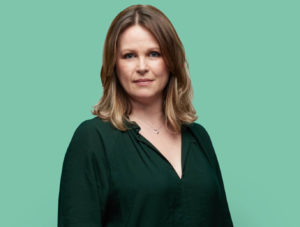Today’s interview is with Justin Welsh, a leading authority in SaaS sales having helped build over fifty million dollars of recurring revenue for 2 separate startups, Justin knows a thing or 2 about building high-performance sales teams. He’s also developed an army of followers on LinkedIn as he provides daily insight for entrepreneurs aspiring to emulate his achievements. So given that on Boss To Boss we care about nothing more than growth within B2B, we’re extremely excited to have Justin join us today.
In Justin’s interview, we’ll be talking about which function should be in the driving seat, sales or marketing, what sales can learn from marketing and how to hire and develop world-class sales teams. We’ll also be getting Justin’s thoughts on how ambitious professionals can make the most of LinkedIn, a channel that for the last couple of years, Justin has totally dominated.
Justin, thank you so much for joining us.
One of the things that really strikes me about you is that despite being a sales guy – or at least that was my initial impression, you might challenge that description – it strikes me that you’ve got a remarkable marketing mind.
Transcript
Dan: So I just wanted to start off in a fairly broad place and get your thoughts on who should be in the driving seat. Should sales be leading marketing? Should marketing be leading sales? Is that something that’s changed in recent years? Does it depend on the organisation?
Justin: Yeah, first of all, thanks for the nice compliment. I think from a marketing perspective, it’s something that’s interesting to me. So I spend a lot of time reading about it and studying it but by no means am I an expert marketer, right? Like if you sit me down next to someone who is a chief marketing officer, they’re going to be so much deeper into the game than I am.
But I do think that, for me, it’s really about co-leadership and I believe that in terms of revenue, I think obviously sales has its own responsibility on the revenue side of the business to make sure that what marketing brings in is closed at a very high level, and marketing has responsibility to bring in a number of qualified leads and opportunities for the sales team, I think the best teams worked together to co-own that.
With that being said, I don’t know that there’s necessarily a right answer because I think if there was a right answer, everyone would be doing it the same way. But I do think that, for me, it’s really about co-leadership and I believe that in terms of revenue, I think obviously sales has its own responsibility on the revenue side of the business to make sure that what marketing brings in is closed at a very high level, and marketing has responsibility to bring in a number of qualified leads and opportunities for the sales team, I think the best teams worked together to co-own that.
When I was at PatientPop building revenue I had a marketing peer named Jared Jost. Jared didn’t own the lead number. It was part of something that he was responsible for but it wasn’t his ultimate ownership. Jared owned revenue. And so did I. And by co-owning that we were able to work together to poke holes in each other’s strategy, right? I’d poke holes in his, he would poke holes in mine. We would figure out the best thing to do together. And I think when you get rid of your ego as an executive leader you recognise that the marketing peer or the sales peer sitting across from you is likely there for a reason, it becomes a team game. And so I think there are obviously lots of granular things you can take out of there. What positions report to who, who’s responsible for exactly what. But from an overarching level, I think that sales and marketing together should own revenue.
Dan: It’s a very interesting, distinct proposition, Zapnito, it would be really interesting to hear you talk through how that came about and what it is that you’re seeking to achieve.
I think you’re actually gonna see email marketing go from strength to strength I think right now, cost per sale or cost per meeting – however, you want to measure the kind of contribution to marketing funnel from a particular channel – email has consistently reduced, to I think, right now it’s at its most effective point. Generally, it’s the lowest cost per whatever your metric is compared to any of the other channels in play, and that’s only coming down.
Email marketing is just going from strength to strength. Certainly, over the next decade you’re going to see more of it and it’s just going to continue to improve itself.
Dan: Absolutely.
So, what from your experience – I mean I’m certainly of the opinion as someone from more of a marketing background myself that there’s no shortage of things that marketing can learn from sales I’ll go as far as to say that probably every marketer should begin with a bit of experience in sales – but from your perspective, the other way around, what what are some of the things that maybe sales can learn from marketing?
Justin: So yeah, I think the first thing they can learn is really nuanced messaging. For instance, salespeople are talking to prospects once they’ve committed to learning more about your product or service, whereas marketing is creating messaging oftentimes for people who are completely unaware of your product or service, sometimes unaware of the problem that your product or service exists to solve. And so as a salesperson, especially if you’re someone doing prospecting, I think understanding that message in how you can get folks who are unaware or unwilling or unlikely or not in the right position to come in and actually learn more about your product, how you can create messaging that moves people further down the funnel.
I think understanding that message in how you can get folks who are unaware or unwilling or unlikely or not in the right position to come in and actually learn more about your product, how you can create messaging that moves people further down the funnel.
I think that’s really really critical as a salesperson, especially as a prospector. I think you can learn a lot about that from marketing. I think the other thing that you can do when you’re chatting with your marketing team is to understand what are the things that are resonating with prospects as they enter the funnel? Because those things need to sound like 1 continuous conversation. When you’re a prospect, from the moment you discover a brand online. From the minute you begin interacting with their content, to the moment you find yourself in a sales funnel, to getting onboarded to renewing, I call that having 1 continuous conversation. You might chat, you might interact with an advertisement, you might chat with a salesperson, you might chat with onboarding, customer success. It should feel like you’re talking to 1 person. And you can’t do that if each department is siloed and doesn’t understand the messaging and the nuance of every other department.
So I think that that just holistically is something that sales and marketing can learn from 1 another. But I think that applies across customer service products and every other team on the in your company.
Dan: And looking at it from a slightly different perspective, what’s irritated you most about marketing over the years? There must have been occasions where from a sales perspective, you’ve kind of looked and said come on guys, you’re really dropping the ball here?
Justin: Yeah, just like there are high performing, middle performing and bottom performing sales teams, salespeople and sales leaders, you run the same sort of gamut on the marketing side, right? And so I think what can be irritating is when a marketer doesn’t want to co-own revenue or when they want to own a lead number, like you know, no offence but like I can get you leads, right? Like give me an excel document full of email addresses, I’ll send a bunch of emails and get you a bunch of leads. But leads are meaningless unless there is some intent to buy or some problem that your product can solve, some objective criteria that make them worth talking to.
So I think the thing that’s been just most irritating is when you have a marketer who wants to own a lead number doesn’t want to participate in co-ownership and I think those people usually sort of getting figured out the kind of early and end up maybe not making it as long or as deep as some other marketers.
Dan: So presumably the most important role of any sales lead is hiring and nurturing the right team? After all, I guess everything from that point onwards is really a consequence of those people.
So is it more important that those candidates have a deep understanding of the market they’re selling into or is there some other variable that should be considered?
Justin: I yeah I think it depends. I can kind of break it into how I think about it.
So my background is in transactional SaaS. So all the teams I’ve built over the last 12 years have always been transactional. So for me, I’ve never really felt the need to hire healthcare experience, like all the teams I built were healthcare but I never really cared if you came from a healthcare care background. What I did care about is that you could manage and not be taken not be caught off guard by the velocity of transactional SaaS. Like transactional SaaS is like go go go. It’s like a Ford assembly line. It requires you to be fast and to be moving your opportunities through the pipeline very quickly.
What I did care about is that you could manage and not be taken not be caught off guard by the velocity of transactional SaaS. Like transactional SaaS is like go go go. It’s like a Ford assembly line. It requires you to be fast and to be moving your opportunities through the pipeline very quickly.
I think because of that I hired people who had come from similar backgrounds ACV wise, similar backgrounds price point-wise, similar background sales cycle-wise and stakeholder wise. Now, if you flip that around and you’re hiring someone to sell a product that has deep machine learning. It’s an enterprise sale. You’re selling to the fortune 100. I mean to me, that’s going to require a deep, deep knowledge of the specific industry. It’s going to require being an expert in certain areas, managing c-suite executives. There’s going to be so many different things that go into hiring that person.
But for me, it’s all about swim lanes. And my swim lanes are average contract value, sales cycle and stakeholder availability.
Dan: Are there some personality types that are more attracted to 1 of those than the other? Because I’m just imagining for a moment on the more complex, long-term, 6 – 9 month sales cycle of huge, huge projects, you might argue that the relationship side is really important. On the other hand, as you say, someone who’s able to deal with that really kind of high-velocity environment.
Is there a slightly different personality that just naturally is drawn to 1 of those over the other? And sort of succeeds in 1 of those rather than the other?
Justin: Definitely, I mean I’m going to paint with a broad brush and I think anytime you do that you generally get some things wrong. It’s not like everyone who sells enterprise and SMB are exactly the same, but generally here’s what I’ve seen.
I’ve seen in my lifetime in SaaS, the folks who are really good at complex enterprise deals generally tend to be academic. They tend to be great listeners. They’re great at managing a very complex deal cycle with multiple stakeholders. They’re patient and they’re like project managers.
SMB or transactional salespeople, again painting with a broad brush, are a little more aggressive. Former quick sports athletes. Really social, a lot of people who are really good are just very social, very talkative, very quick to move things through. And they also have very, very thick skin, as most salespeople do. Transactional SaaS you’re hearing no all the time, not just from prospecting but also from your deals and so you got to have a thick skin. It’s kind of like that quarterback and in American football where it’s like you throw an interception you got to have a short memory, right? Like you got to run back out there and you throw a touchdown. And so that’s basically you know some differences that I’ve seen in sort of those complex sellers and the SMB transactional sellers.
Dan: I Love that. I Love that. That’s a really interesting distinction.
So a slightly different kind of question. So I know you’ve got a lot of experience in field sales. I Just wonder, and you’re probably sick of answering questions relating to the pandemic now, but I just wonder how the pandemic may have affected the importance of getting in front of people in the sales process?
Do you subscribe to what seems to be an increasingly popular notion that everything that was once done offline can now be done over Zoom? Or do you think that, actually, some things never really change?
Justin: I think a lot of things that can be done in person can be done over Zoom. I don’t know that everything can, but I would say that just because something can be done, doesn’t mean that there aren’t things that you miss when you take away the in-person visit.
You cannot recreate some of those things over Zoom, at least not as effectively as you can in person.
I think having been very early – I was a sub-10 employee at two really successful startup companies – I loved in the early days really chatting with my customer, like really being in their office, getting a tour, understanding how their business works, shaking hands, going out for a beer, getting some of the professional masks off and getting the personal mask on. I think a lot of those things are really really beneficial. You cannot recreate some of those things over Zoom, at least not as effectively as you can in person. But that being said, are there benefits to inside sales? Of course. Efficiency reach, cost, there are a million benefits.
I’ll be sad if field selling, even though it’s relatively antiquated, I’ll be sad if it goes away completely. I think there’s a lot to be learned from being close to your customer.
Dan: And in a sense, is there an argument to say well the fact that it’s become something of a peripheral activity for obvious reasons over the last couple of years, is there an argument to say that for that very reason, there’s more of an opportunity there?
Justin: I think so, you know, pre-pandemic at PatientPop, we had an average contract value of 13,500 dollars, a sales cycle of less than 10 days, that is ripe for inside sales and we had a nice big inside sales team. We also had a field sales team that did 20 to 30 million in bookings every year and that field sales team, I like to think, was a competitive differentiator. If you look at our competitors, we grew faster and to a higher revenue number than all of those companies. And we did it by selling in a similar space, selling a similar feature set and we did it because we went out and we bombarded our market and our field salespeople were really, really good. We’re talking about paying someone between 175 – 200K and bringing us 1.4 – 1.5 million in gross new bookings a year, and that to me was awesome and we learned a heck of a lot about our customers.
So yeah, I think there’s a huge opportunity to continue to do that, especially as some of the restrictions let up.
Dan: That’s amazing. So moving on to LinkedIn for a moment. I’d just love to understand or get your thoughts on some of the things that you think you’ve done that have developed that audience and how impactful that’s proving to be for your business given that your proposition is quite specific?
Justin:
I mean I’ll start with things I think I’ve done well. I think number 1, I got lucky. I think anyone who started writing or producing content on LinkedIn in 2018, there’s some luck to that, right? I just chose LinkedIn because that’s just what I chose, started creating content when there were no content creators on the platform and now there’s a lot more. And so I think getting in early was a win for me.
Teaching myself to write copy is something that I take a lot of pride in. I read a lot of copywriting books. I took a lot of copywriting courses. I read a lot of material on marketing. I’m huge on distribution like it’s just a hobby of mine. I like to do those kinds of things. And so I think starting early and staying really consistent. So I write every single day. Hardly ever take off. And then understanding human psychology. I’m a huge fan of reading how people make decisions, which I think you have to be already if you’re going to be in sales.
So there’s a lot of crossover from my sales world. But I think those are some of the things that enabled me to be successful. I just care about it. I like it and so I spend a lot of time learning about it.
Engagement is something that needs an evolution of definition. So engagement can be somebody going through a course but not participating in any conversations. Engagement shouldn’t be looked at as what you do on Facebook, engagement can be going through a learning process.
I think attention is the new currency. I think that you can create your own attention online and by doing so you’re just available to so many different opportunities.
I think attention is the new currency. I think that you can create your own attention online and by doing so you’re just available to so many different opportunities. I’ve ended up in multiple discord channels, I’ve ended up in multiple slack channels, I’ve landed a million dollars in consulting business, I’ve built a community of 425 people and sold 4,500 courses. There’s just like a million different opportunities that come to you when people see your face every day and so I feel like LinkedIn is an opportunity to speak on stage at a stadium filled with people every single morning and I just think if people aren’t taking advantage of that they’re missing out.
Dan: Has it shifted your perspective at all because obviously historically, and I get the sense that you’ve always had a strong marketing brain anyway, but historically you’ve obviously developed your career within a very high-velocity B2B sales environment where presumably you’ve had to be fairly short-term focused, right? And now what you’ve described is over the last 2 or 3 years you’ve developed the most wonderful brand and now you’re benefiting from all of the benefits of that.
Have you always had that kind of mindset or has your experience with LinkedIn, and all the other activities that you’re engaged in off the back of that, has that evolved your thinking a little bit and consequently if you were developing a sales team now and you were training these people, would your advice be a little bit different?
Justin: So yeah I mean it’s interesting because as a sales leader right, you know running the sales organisation at PatientPop, while we had a short-term deal flow or deal cycle which was very transactional, I mean strategically I had to think long-term about headcount, I had to think about the product evolution, I had to think about our go-to-market strategy over time, how we’re going to grow our bookings, new distribution channels.
All of those things require long term thinking but at the same time you have to balance out short term accomplishments and I think that is a really unique balance as a sales leader, especially 1 who is transactional in nature, so going into creating content on LinkedIn, I think 1 of the best things that I did was not have an expectation. I initially looked at it as an outlet for creativity as a potential opportunity to get a few eyeballs to grow some thought leadership to build my brand all of those things and so as it started to work, and it worked, it took about nine months, I really started thinking about the aggregate total of doing this for a much longer period of time.
Long term, it’s not a great strategy. So I need to think about what my content strategy is. What is my brand strategy? Who am I going to be? Where am I going to be active? How will distribution work? I need to think about what that’s going to look like 10 years from now all the time while simultaneously stepping up to the plate and hitting singles every day, trying to get some attention.
So like yes, tomorrow I can go on LinkedIn and write a post and say people should buy my course and here’s a coupon and I’ll make sales and it’ll be a good sales day. Long term, it’s not a great strategy. So I need to think about what my content strategy is. What is my brand strategy? Who am I going to be? Where am I going to be active? How will distribution work? I need to think about what that’s going to look like 10 years from now all the time while simultaneously stepping up to the plate and hitting singles every day, trying to get some attention. So it’s not too dissimilar from my previous role where it’s like long-term vision, a lot of short-term execution and then the aggregate total of those short-term executions being something really valuable in the long-term if that makes sense.
Dan: Absolutely, it makes so much sense.
Thank you so much for this, Justin. I really, really enjoyed it.
Justin: Of course I really enjoyed it. Thanks for spending some time with me and having me on the show. Always appreciate it.




